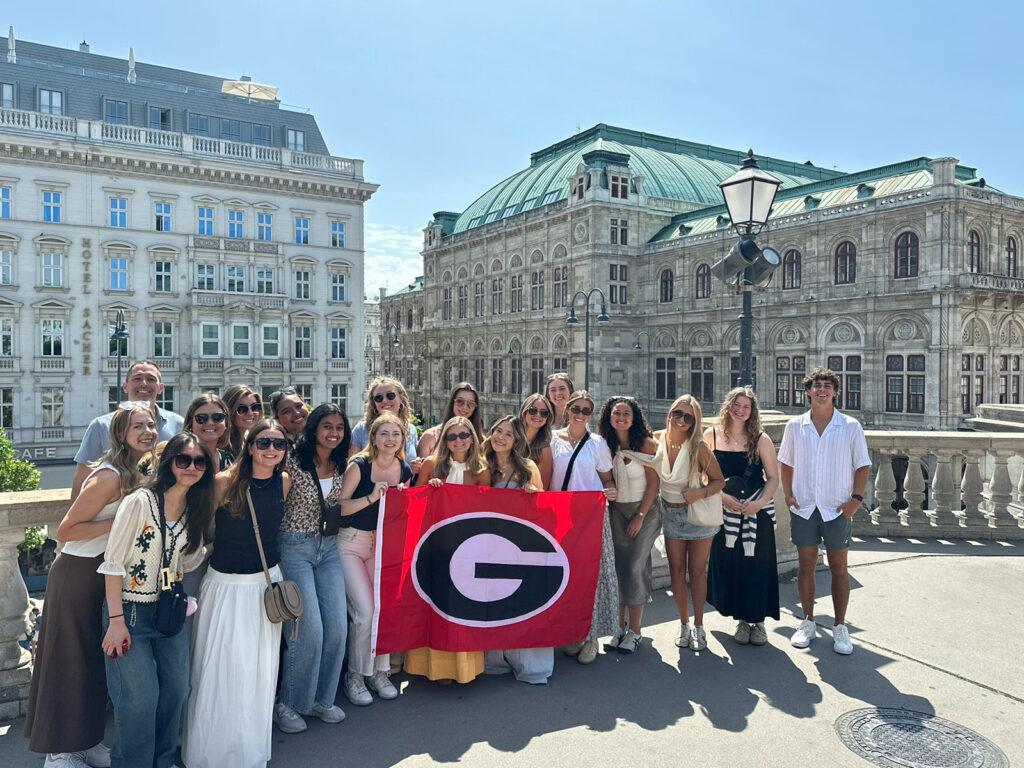Terry College of Business students traveled to Austria, Serbia, and Hungary this summer to uncovering how different European business cultures evolved since the fall of the Iron Curtain.
It takes six hours to drive from Vienna, Austria, to Belgrade, Serbia. However, that short drive illustrates how diverse the European economies remain, over 40 years after the fall of communism and 30 years after the formation of the European Union.
For Greg Day, associate professor of legal studies who taught the study abroad course, the trip showcased how each country’s cultural background and history impact business.
“I think visiting three countries back-to-back allows students to see the subtle changes from culture to culture and realize the culturally embedded practices they don’t realize they’re bringing with them from the United States,” Day said.
Over their three-week tour, students visited start-ups with young entrepreneurs shaping digital innovation in Serbia and Hungary’s growing economies and pillars of the European economy, such as the European Investment Bank in Vienna.
Students saw how global trade policies and domestic politics shape business attitudes. For instance, said MIS junior Meghana Kottapalli, Serbia’s bid to join the European Union and Hungary’s conservative national politics were evident in the workplaces they toured.
“Throughout the whole process, I journaled, and I was able to see the differences between the businesses,” Kottapalli said. “There were a lot more similarities than differences in their values and work life culture, but the differences came from the social and political environments in each country.”
The cultural shift between Vienna, which has served as a financial hub since the 18th century, and Belgrade, which is emerging as a hub of tech innovation, was noticeable highlighting the impact recent European history has on the region.
In addition to company and embassy visits, students visited Vienna’s palaces and museums, Hungary’s public baths, and toured Belgrade in a fleet of Yugos.
Most importantly, Day said, the experience gave Kottapalli and her fellow travelers the chance to explore the idea of living and working in another country.
“Before this trip, I had never considered working abroad,” Kottapalli said. “But after this trip, I think it would be cool to work in another country during my 20s. I’m not there 100% because it’s such a huge jump. But this opened my eyes to the fact that it’s something I can do.”

